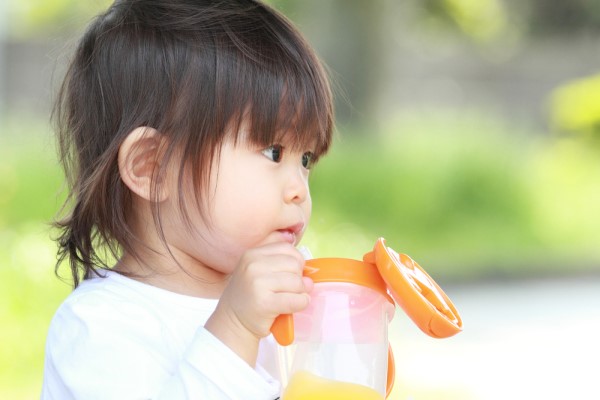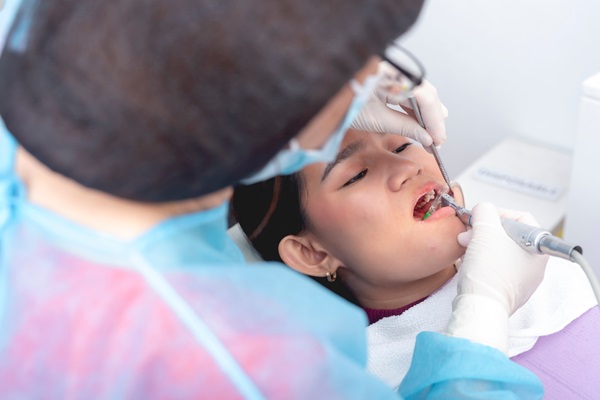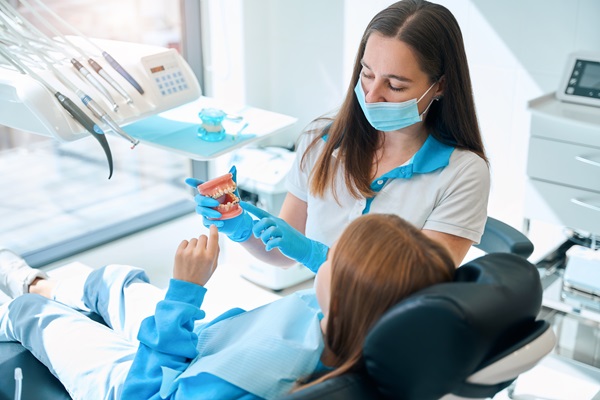Pediatric Dentistry Tips: How a Sippy Cup Can Help Prevent Against Tooth Decay

It is a milestone in pediatric dentistry for a toddler to let go of the bottle. This is a thrilling moment for parents as well. It is the start of a child’s independence. If you want to know how a sippy cup can protect against tooth decay, here are some pediatric dentistry tips.
Picking the right type of sippy cup
A sippy cup is not a no-spill cup. This cup has a design that aims to teach the child how to sip. A no-spill cup has a stop valve. It stops spills. But the child has to suck to get liquid from it. The cup must have a screw-on or snap-on lid with a spout.
Choosing a sippy cup with a valveless spout will teach the child how to control the flow of the drink inside. Training cups have one handle on each side. Selecting a sippy cup with a weighted bottom helps keep the cup upright. This reduces spills.
Knowing what is inside the sippy cup
This pediatric dentistry tip recognizes how parents want what is good for their children. This includes knowing what type of liquid goes into the sippy cup. Fluoridated water or milk can be good for the child’s dental development. One pediatric dentistry tip is that parents must not put juices inside the sippy cup. It is not nutritious for kids under one year. Parents should not let them drink juices at all.
Juices are sugary. Drinking them puts children at risk for cavities. The risk goes higher if the child drinks juices in between meals. After drinking some juice, the toddler can have a meal. Chewing stimulates the production of saliva. This clear, alkaline fluid buffers the acids from the juice and the bacteria in the mouth.
Training with the sippy cup
It will take time for a baby to learn how to use a sippy cup. This is one of the vital skills in developmental and pediatric dentistry. Both the parent and baby must have the patience to practice. A parent can introduce the sippy cup by using it to let the baby drink water in between meals. This can also happen while the family is traveling.
Toddlers can use sippy cups during mealtimes. Placing a small amount of milk or water in the cup will limit the spills. The light weight can make the child lift the cup better. Small paper cups or sippy cups with two handles are good starters.
A sippy cup can help prevent tooth decay by placing water in it instead of juice. Water is a good type of liquid that a child can sip even at bedtime. It stimulates the production of saliva, which counters the acids from bacteria. A small population of bacteria in the child’s mouth decreases the formation of cavities.
Pediatric dentistry recognizes the importance of sippy cups in keeping a child’s mouth healthy
The toddler stage is important in pediatric dentistry. It is when your baby starts to feel some level of independence when it comes to drinking. As a parent, you must help regulate the type of liquid your toddler drinks from the sippy cup. Water and milk are ideal liquids. These are alkaline liquids. A dental appointment with your pediatric dentistry professional can help teach you more techniques when it comes to brushing.
Are you considering having a pediatric dentistry treatment in the Phoenix area? Get more information at https://nettsmiles.com.
Check out what others are saying about our dental services on Yelp: Pediatric Dentist in Phoenix, AZ.
Recent Posts
Cavity treatment for kids is a chief concern among parents, and for a good reason. Cavities are common in children of all ages. According to the Centers for Disease Control and Prevention, over half of the kids ages 6 to 8 have had at least one cavity in a primary tooth. The good news is…
Pediatric dentistry focuses on the oral problems that occur in children. Many dental issues in kids are similar to those that occur in adults. Without proper treatment, dental problems can progress to misaligned teeth and poor oral health. If you want to maintain your child’s dental health, here are the common dental issues that pediatric…
In their early years, your youngster is still a novice in brushing and flossing their teeth, meaning that cleaning your child's teeth in that period is your responsibility. Cleaning the teeth is a skill that the child should learn. Your role is to educate your youngster on how to keep their mouths clean and healthy.…
When does my child need pediatric dentistry? This is a question that many parents often ask. The answer may vary depending on the opinion of the pediatric dentist. However, most pediatric dentists believe that a child should go to pediatric dentistry by their first birthday.A child needs to get used to the dentist at an…


